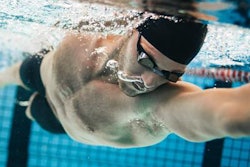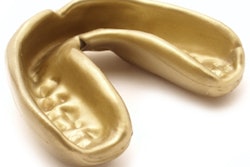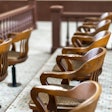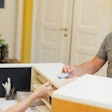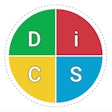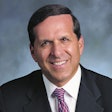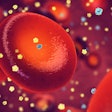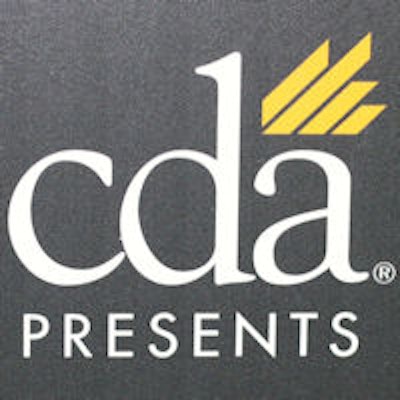
Nearly every dentist will need to address sports-related trauma at some point, and the best time to educate patients about injuries is before they occur, according to a presentation by Dr. Ray Padilla at the recent California Dental Association's CDA Presents 2015 meeting in San Francisco.
Dr. Padilla, who spoke to DrBicuspid.com about mouthguards in 2007, is no stranger to sports-related dental injuries. As the team dentist for the Los Angeles Galaxy Major League Soccer team and the University of California, Los Angeles (UCLA) athletics, as well as the consulting dentist for the U.S. National and Olympic soccer teams, he has years of experience treating and preventing injuries. However, he believes that awareness about what to do in case of an injury should start in the dental practice -- before the injury occurs.
"This is the one thing that the whole team needs to know," he said. "The best time to help prevent sports injuries is before they happen."
Educate patients
Everyone on the dental team can help teach patients what to do before their tooth or someone else's tooth comes out, according to Dr. Padilla. It is important for patients to know they need to rinse debris off the tooth and put it back in the mouth within five minutes, he noted.
"By the time they see us for an avulsion, it's too late," he said. "Parents, coaches, teachers, nurses ... tell them if this happens on your property, you need to put that tooth in right away, within five minutes. ... If the tooth has been out of the mouth for more than five minutes, it will never be the same again. That means if it is put back in, it will have to be extracted sooner or later."
However, there are circumstances when a tooth cannot or should not be put back in, such as if the person is unconscious. In those instances, Dr. Padilla recommends patients store the tooth with a Save-A-Tooth emergency tooth preserving kit or even just milk. It is important to let them know to never store the tooth dry or even in water.
For strictly dental injuries, it is best for patients seek out a dentist rather an emergency room, because "most emergency rooms do not have the tools or splint kits to splint teeth together," he said. He recommends that dentists who treat dental trauma have a way for patients to contact them 24/7, such as leaving a cellphone number on the office answering machine, and dentists should have a backup plan in case they are not immediately available.
Anticipate and prevent trauma
More than 80% of injuries happen to the top, front four teeth, according to Dr. Padilla, so dentists can take steps to prevent injuries before they occur. One way is to send patients with troublesome bites to pediatric dentists, orthodontists, or maxillofacial surgeons to address problems.
In addition, the best thing that dentists can do to prevent sports injuries is to make custom, properly fitting mouthguards for patients. Dr. Padilla recommends that children start wearing a mouthguard around 11 years old, when sports start to become more intense. However, he noted that he had his own children wear mouthguards at age 5, because he wanted them to get used to wearing one.
Dr. Padilla only creates pressure thermoformed mouthguards, and he said that stock, boil-and-bites, and conventional vacuum mouthguards do not come close to the same level of protection. He even cited research showing that boil-and-bites do not prevent injuries any more than not wearing a mouthguard at all.
"I know a lot of you are still using the vacuum machine, and it's pretty outdated now," he said. "I have never had an injury with any athlete who's worn a pressure thermoformed mouthguard, and I've been fabricating these for more than 20 years."
He emphasized that, while pressure laminated mouthguard machines can be expensive, he believes their ability to fabricate top-notch mouthguards in-house makes them a worthwhile purchase. The machines can also create a plethora of other tools, including orthodontic retainers, fluoride trays, snore guards, denture bases, and periodontal stents, he added.
Treat appropriately when trauma does occur
No matter the amount of preventive steps practitioners take, injuries may still occur. When they do, Dr. Padilla noted that it is important to document all the relevant information regarding the trauma, including the following:
- How it occurred
- Where it occurred
- When it occurred
- Any unconsciousness
- Disturbance in bite
- Reactions to hot, cold, or pressure
Dr. Padilla also stressed that ruling out head injury is very important before treating dental trauma. For cases with any question of head trauma, the patient should be seen by the proper medical personnel.
He also noted that surgeons should not wire patients shut for jaw fracture in case of any head trauma such as concussion, citing an incidence in which a quarterback with a jaw fracture got rubber bands instead of wires because of a potential head injury.
"What happens if he has to vomit and can't open his mouth?" Dr. Padilla asked. "We gave him scissors, and we said, 'If you feel at all nauseous, just start cutting the rubber bands off.' "
Dr. Padilla also recommended two databases, SickKids and the Dental Trauma Guide, that provide resources for all types of injuries. SickKids gives evidence-based recommendations for what to tell patients, things that will cause a tooth to fill, and the responsibilities of the dentist and the patient. The Dental Trauma Guide is an evidence-based, step-by-step guide of what to do depending on the injury type.
"Every conceivable type of injury is right here," he said. "This is updated all the time. It's not like a textbook that's static."
Finally, Dr. Padilla believes you don't have to be an official team dentist to help. If you see or suspect dental trauma at a recreational game, like Little League, high school sports, or over age 50 adult leagues, don't be afraid to take action.
"Most places with sports don't have team dentists -- they have you," he said. "Plus, it will really help you practice."




